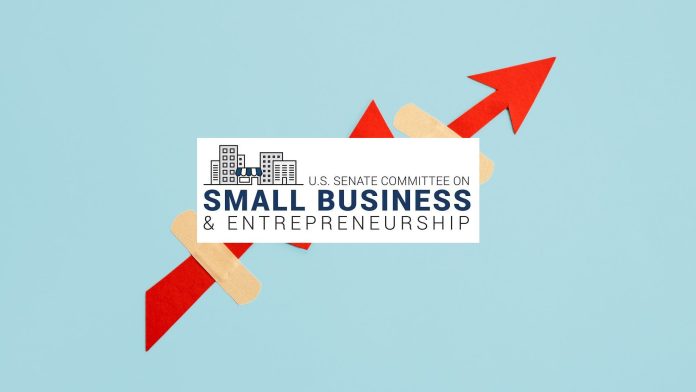In a recent U.S. Senate hearing, Chair Joni Ernst (R-Iowa) underscored the critical role small manufacturers play in America’s economic resurgence. With small manufacturers constituting 98% of all manufacturing firms in the country, Ernst’s remarks brought renewed focus to boosting local production and creating job opportunities.
The discussion centered on the pressing need for Congress to reignite investment in these vital businesses, particularly as they face challenges from global supply chain dependencies. Ernst pointed out that the U.S. recorded a staggering $29.7 billion trade deficit with China in January, highlighting the risks of over-reliance on foreign markets. "We’ve left ourselves economically beholden to the rest of the world," she stated, noting that the manufacturing sector currently represents only 10.1% of the U.S. GDP, trailing behind many other industrialized nations.
Ernst’s emphasis on a "great American comeback" revolves around fostering a domestic manufacturing base that strengthens the nation’s economic security. “They are ready to build, ready to grow, and they want to do it here – in the United States,” she declared, referring to small manufacturers eager to lead this industrial revival.
However, the path to revitalization isn’t without its hurdles. One significant roadblock is the amount of capital required for new manufacturing projects or upgrades to existing facilities. Ernst acknowledged that small businesses often struggle to secure long-term financing. To address this, she introduced the Made in America Manufacturing Finance Act, which seeks to double the Small Business Administration (SBA)-backed loan limit from $5 million to $10 million for small manufacturers. This legislation aims to provide the necessary financial support for manufacturers to invest in their operations, thereby bolstering workforce training and expansion.
"By allowing manufacturers to access greater capital, my legislation encourages small manufacturers to invest in their operations," Ernst explained. This is perceived as a straightforward, bipartisan approach that could enhance the competitiveness of American manufacturers on the global stage.
Ernst also addressed the potential of existing SBA programs, particularly the Small Business Investment Company (SBIC), which facilitates private investment in small businesses. The goal is to better align SBA initiatives with the needs of small manufacturers and harness private capital to fuel new projects.
The implications for small business owners are significant. With increased funding opportunities and governmental support, small manufacturers could see greater resources for expansion, innovation, and workforce development. This not only helps individual businesses thrive but also contributes to national economic stability by reducing reliance on imports.
However, small business owners should keep in mind some potential challenges. While the proposed financial measures could unlock much-needed capital, accessing these funds often requires navigating complex bureaucratic processes. Additionally, the optimism surrounding investment in domestic manufacturing comes with the need for robust strategies to attract and retain skilled workers, aligning training programs with evolving industry demands.
The hearing featured testimonies from various stakeholders, including Mr. Mickelson of Iowa and Mr. Geis of Missouri, who are actively involved in investing in small businesses through the SBIC program. Their insights will likely inform future legislative decisions and define how Congress aligns resources with manufacturers’ needs.
As the momentum builds around domestic manufacturing, small business owners have a unique opportunity to leverage governmental support to drive their ambitions. With a bipartisan effort underway in Congress, the landscape for small manufacturers looks to be evolving positively, meaning that now might be the right time for small manufacturers to evaluate their strategies, seek funding, and engage with new programs.
For more on these developments and the potential impact on small manufacturers across the country, the original press release can be found here.
Image Via Envato: IrynaKhabliuk



